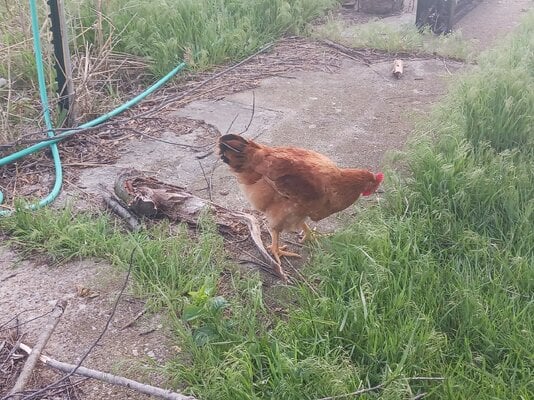I got 5 straight run Rudd Rangers this spring in the hope that one or two would be female to add to my landrace.
One refused to roost in the coop at night (usually disappeared a couple hours before sundown) and didn't come back one morning.
Of the remaining four, one is a cockerel.
They are currently 8 weeks. I was going to keep them until 12 weeks before making decisions. Of the four, the three largest are already showing signs of having difficulty wallking. They prefer to sit down to eat even when free ranging, flopping down to nibble and then getting up to walk a few steps and flop again. They don't settle, they flop, like their legs gave out.
They are otherwise relatively mobile. 3 of the four appear to be having some difficulty moving, but it doesn't look painful. Just awkward and tired.
They are on a 24% meat bird feed.
My question would be, leaving breed standards aside, what criteria should I use to determine which, if any, to keep? Is it even worth trying to get them to adult breeding age?
One refused to roost in the coop at night (usually disappeared a couple hours before sundown) and didn't come back one morning.
Of the remaining four, one is a cockerel.
They are currently 8 weeks. I was going to keep them until 12 weeks before making decisions. Of the four, the three largest are already showing signs of having difficulty wallking. They prefer to sit down to eat even when free ranging, flopping down to nibble and then getting up to walk a few steps and flop again. They don't settle, they flop, like their legs gave out.
They are otherwise relatively mobile. 3 of the four appear to be having some difficulty moving, but it doesn't look painful. Just awkward and tired.
They are on a 24% meat bird feed.
My question would be, leaving breed standards aside, what criteria should I use to determine which, if any, to keep? Is it even worth trying to get them to adult breeding age?
Last edited:




